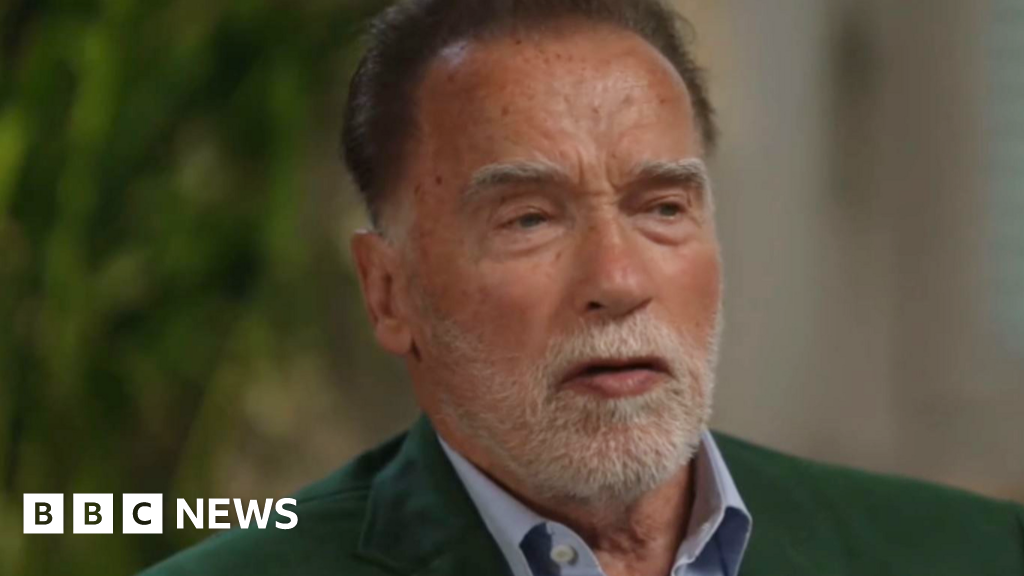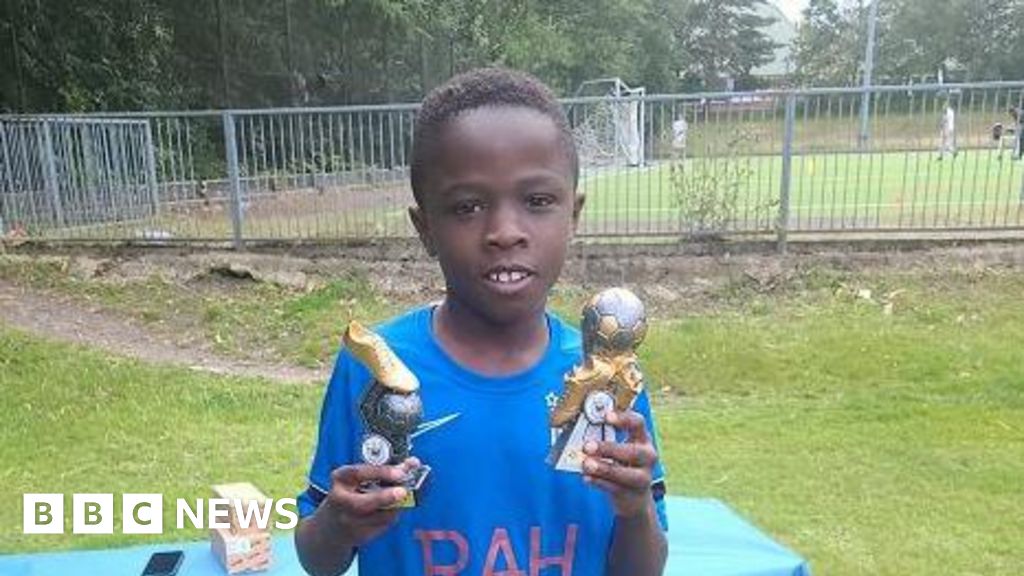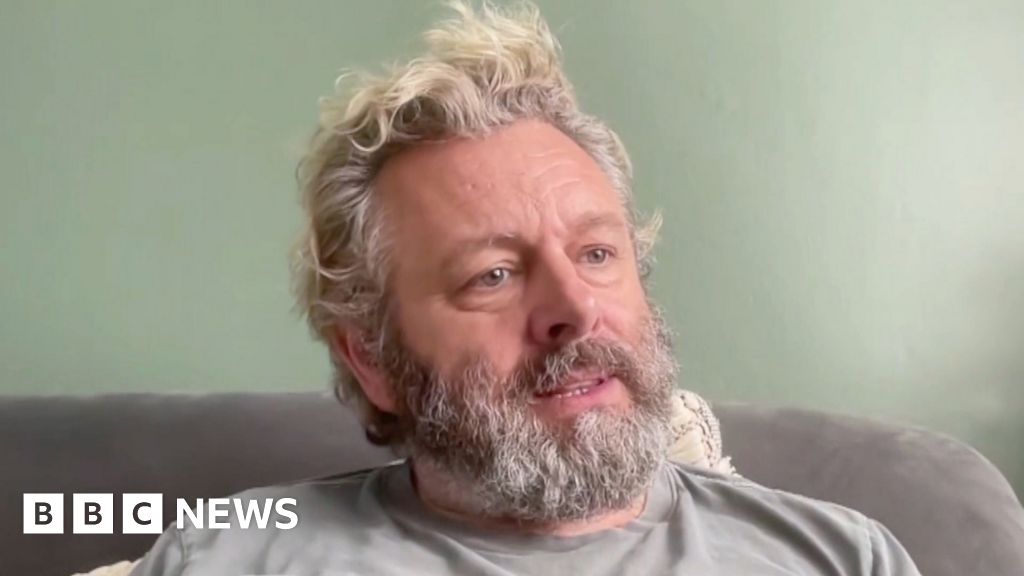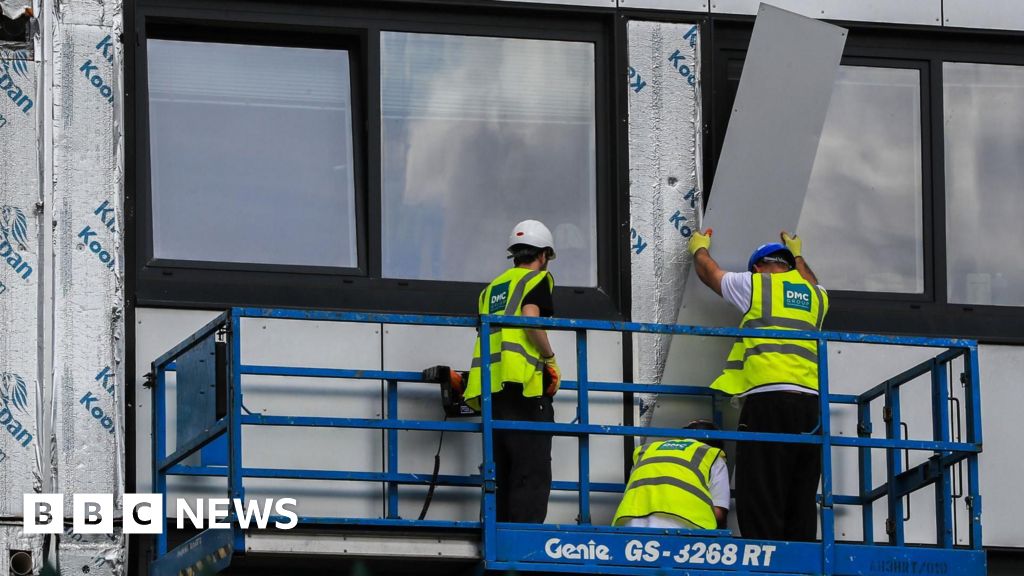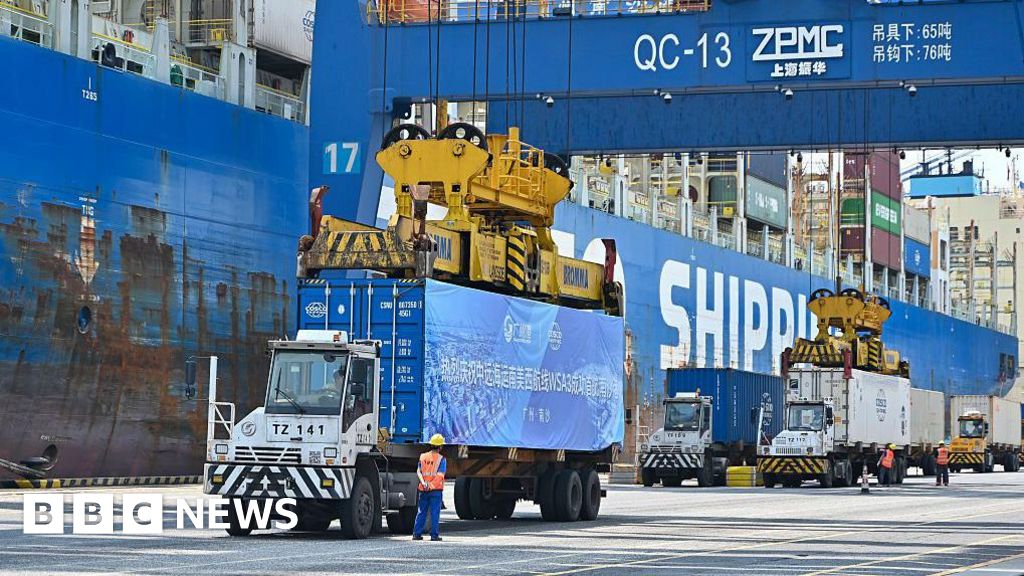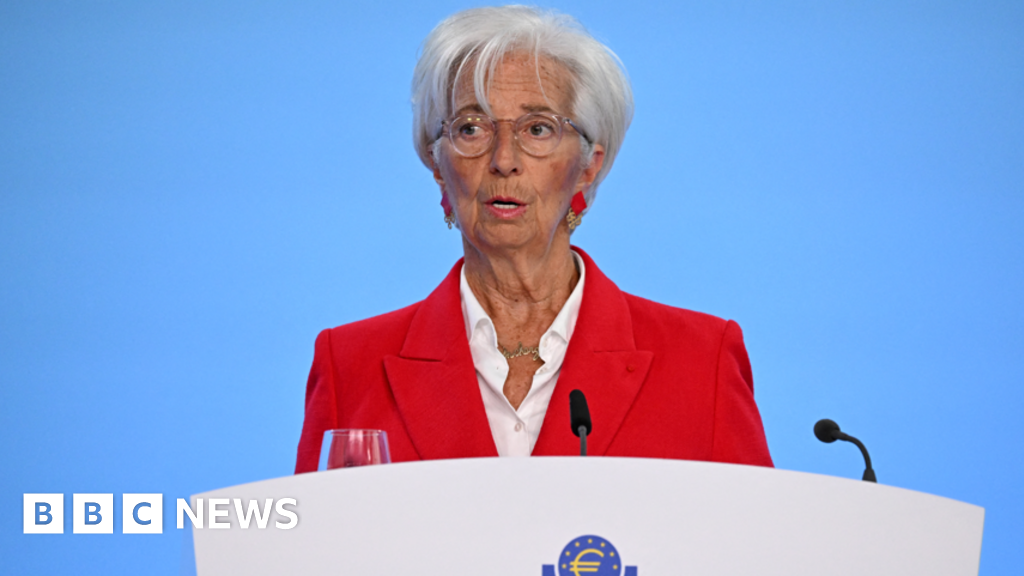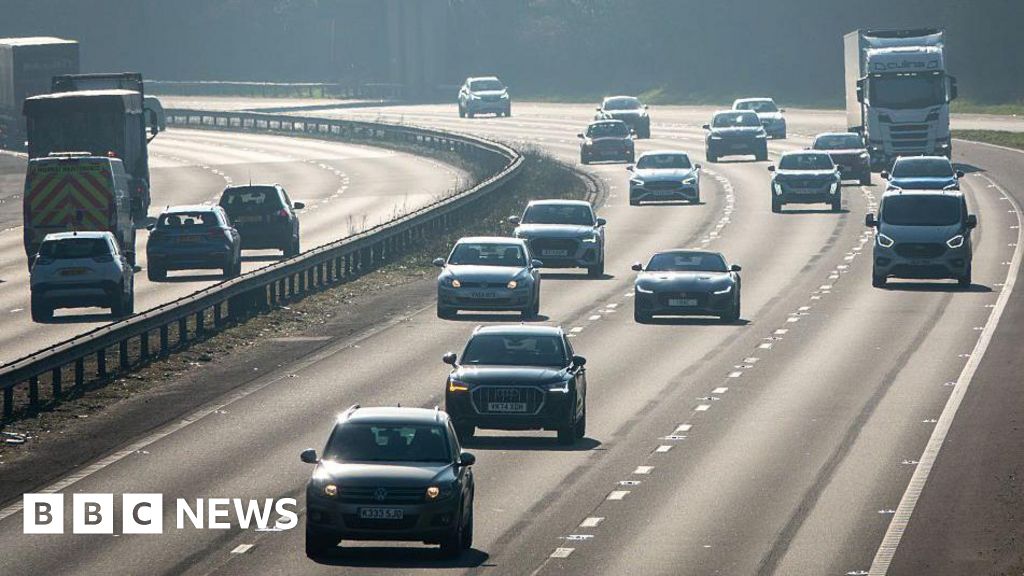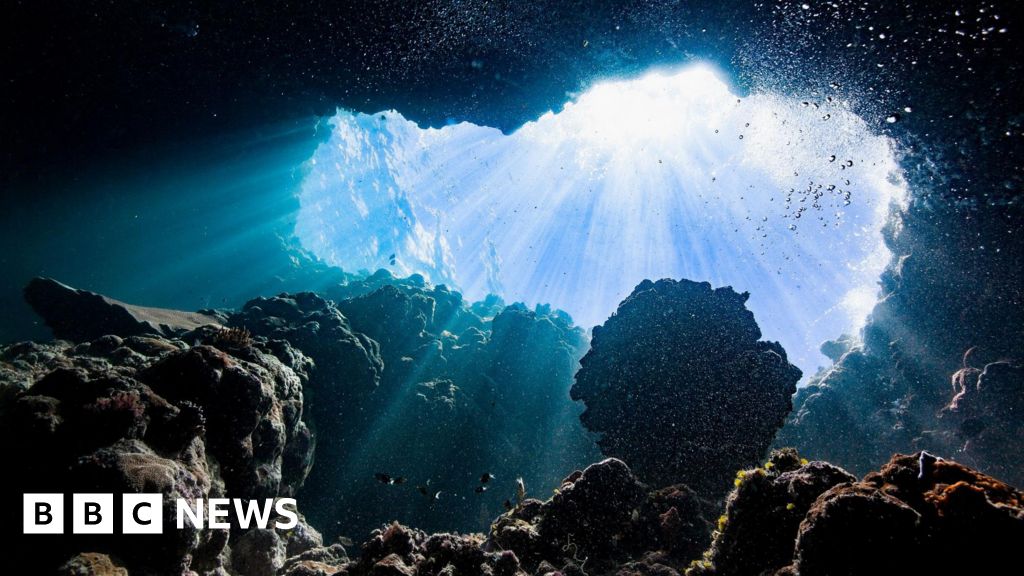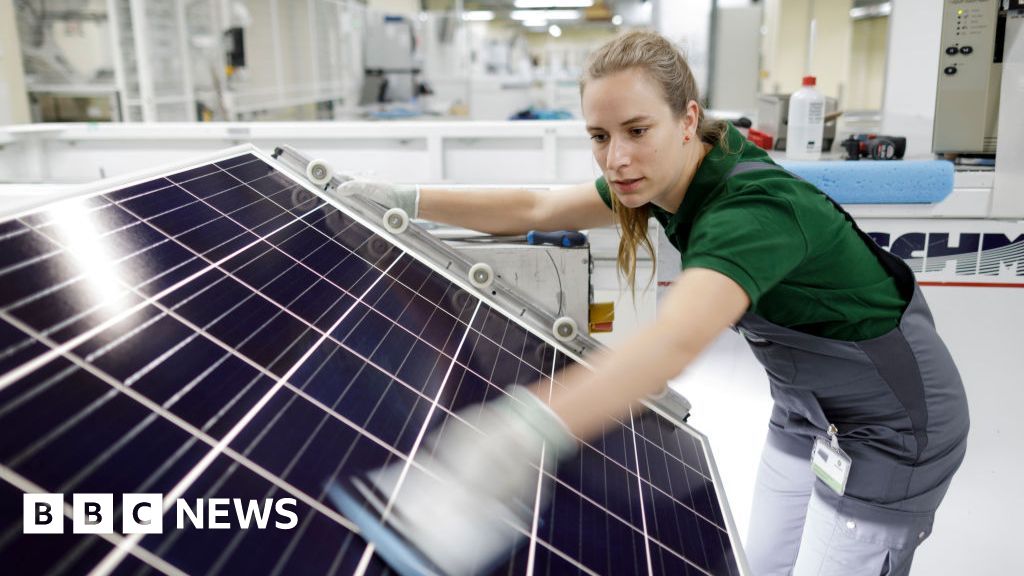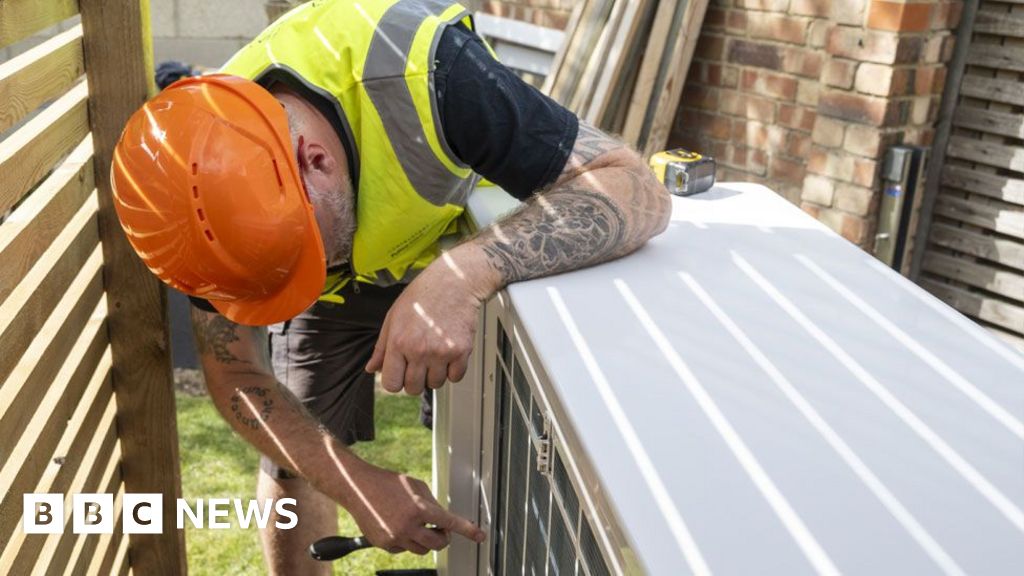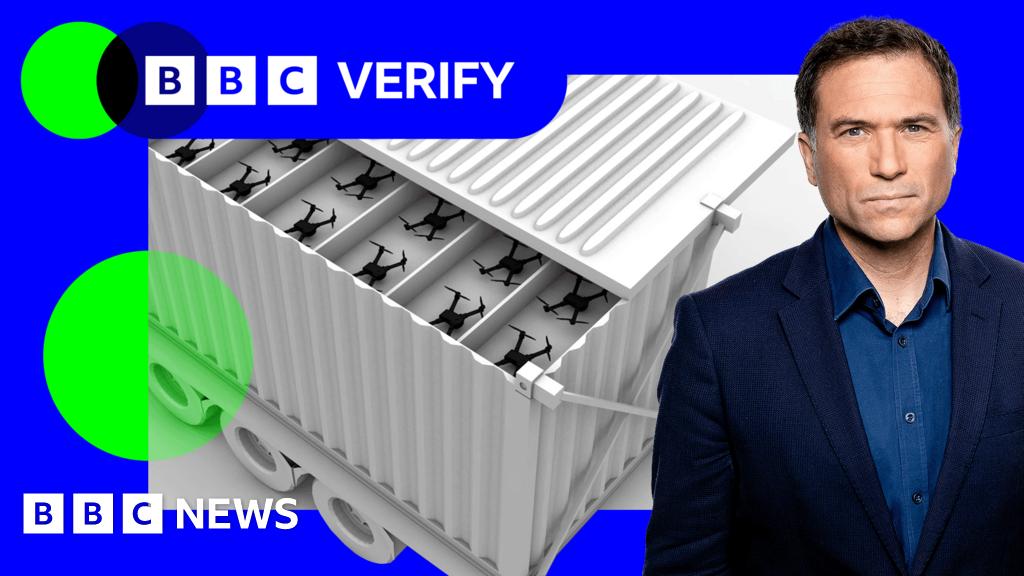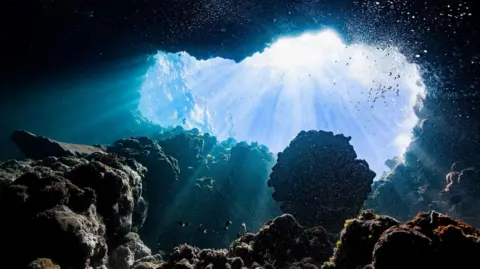 Getty Images
Getty ImagesScientists have discovered “dark oxygen” being produced in the deep ocean, apparently by lumps of metal on the seafloor.
About half the oxygen we breathe comes from the ocean. But, before this discovery, it was understood that it was made by marine plants photosynthesising – something that requires sunlight.
Here, at depths of 5km, where no sunlight can penetrate, the oxygen appears to be produced by naturally occurring metallic “nodules” which split seawater – H2O – into hydrogen and oxygen.
Several mining companies have plans to collect these nodules, which marine scientists fear could disrupt the newly discovered process – and damage any marine life that depends on the oxygen they make.
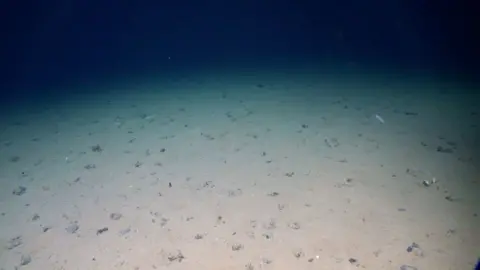 NOC/NHM/NERC SMARTEX
NOC/NHM/NERC SMARTEX “I first saw this in 2013 – an enormous amount of oxygen being produced at the seafloor in complete darkness,” explains lead researcher Prof Andrew Sweetman from the Scottish Association for Marine Science. “I just ignored it, because I’d been taught – you only get oxygen through photosynthesis.
“Eventually, I realised that for years I’d been ignoring this potentially huge discovery,” he told BBC News.
He and his colleagues carried out their research in an area of the deep sea between Hawaii and Mexico – part of a vast swathe of seafloor that is covered with these metal nodules. The nodules form when dissolved metals in seawater collect on fragments of shell – or other debris. It’s a process that takes millions of years.
And because these nodules contain metals like lithium, cobalt and copper – all of which are needed to make batteries – many mining companies are developing technology to collect them and bring them to the surface.
But Prof Sweetman says the dark oxygen they make could also support life on the seafloor. And his discovery, published in the journal Nature Geoscience, raises new concerns about the risks of proposed deep-sea mining ventures.
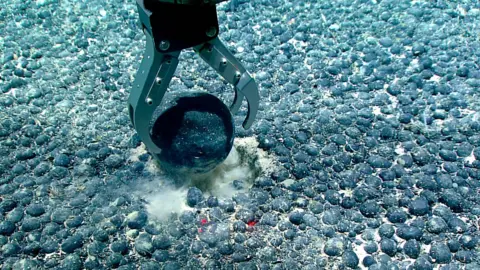 Science Photo Library/NOAA
Science Photo Library/NOAAThe scientists worked out that the metal nodules are able to make oxygen precisely because they act like batteries.
“If you put a battery into seawater, it starts fizzing,” explained Prof Sweetman. “That’s because the electric current is actually splitting seawater into oxygen and hydrogen [which are the bubbles]. We think that’s happening with these nodules in their natural state.”
“It’s like a battery in a torch,” he added. “You put one battery in, it doesn’t light up. You put two in and you’ve got enough voltage to light up the torch. So when the nodules are sitting at the seafloor in contact with one another, they’re working in unison – like multiple batteries.”
The researchers put this theory to the test in the lab, collecting and studying the potato-sized metal nodules. Their experiments measured the voltages on the surface of each metallic lump – essentially the strength of the electric current. They found it to be almost equal to the voltage in a typical AA-sized battery.
This means, they say, that the nodules sitting on the seabed could generate electric currents large enough to split, or electrolyse, molecules of seawater.
The researchers think the same process – battery-powered oxygen production that requires no light and no biological process – could be happening on other moons and planets, creating oxygen-rich environments where life could thrive.
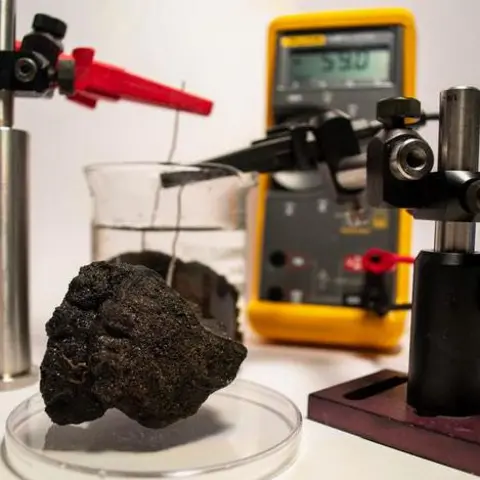 Camille Bridgewater
Camille BridgewaterThe Clarion-Clipperton Zone, where the discovery was made, is a site already being explored by a number of seabed mining companies, which are developing technology to collect the nodules and bring them to a ship at the surface.
The US National Oceanic and Atmospheric Administration (NOAA) has warned that this seabed mining could “result in the destruction of life and the seabed habitat in the mined areas”.
More than 800 marine scientists from 44 countries have signed a petition highlighting the environmental risks and calling for a pause on mining activity.
New species are being discovered in the deep ocean all the time – it is often said that we know more about the surface of the Moon than we do about the deep sea. And this discovery suggests that the nodules themselves could be providing the oxygen to support life there.
Prof Murray Roberts, a marine biologist from the Univerisity of Edinburgh is one of the scientists who signed the seabed mining petition. “There’s already overwhelming evidence that strip mining deep-sea nodule fields will destroy ecosystems we barely understand,” he told BBC News.
“Because these fields cover such huge areas of our planet it would be crazy to press ahead with deep-sea mining knowing they may be a significant source of oxygen production.”
Prof Sweetman added: “I don’t see this study as something that will put an end to mining.
“[But] we need to explore it in greater detail and we need to use this information and the data we gather in future if we are going to go into the deep ocean and mine it in the most environmentally friendly way possible.”


